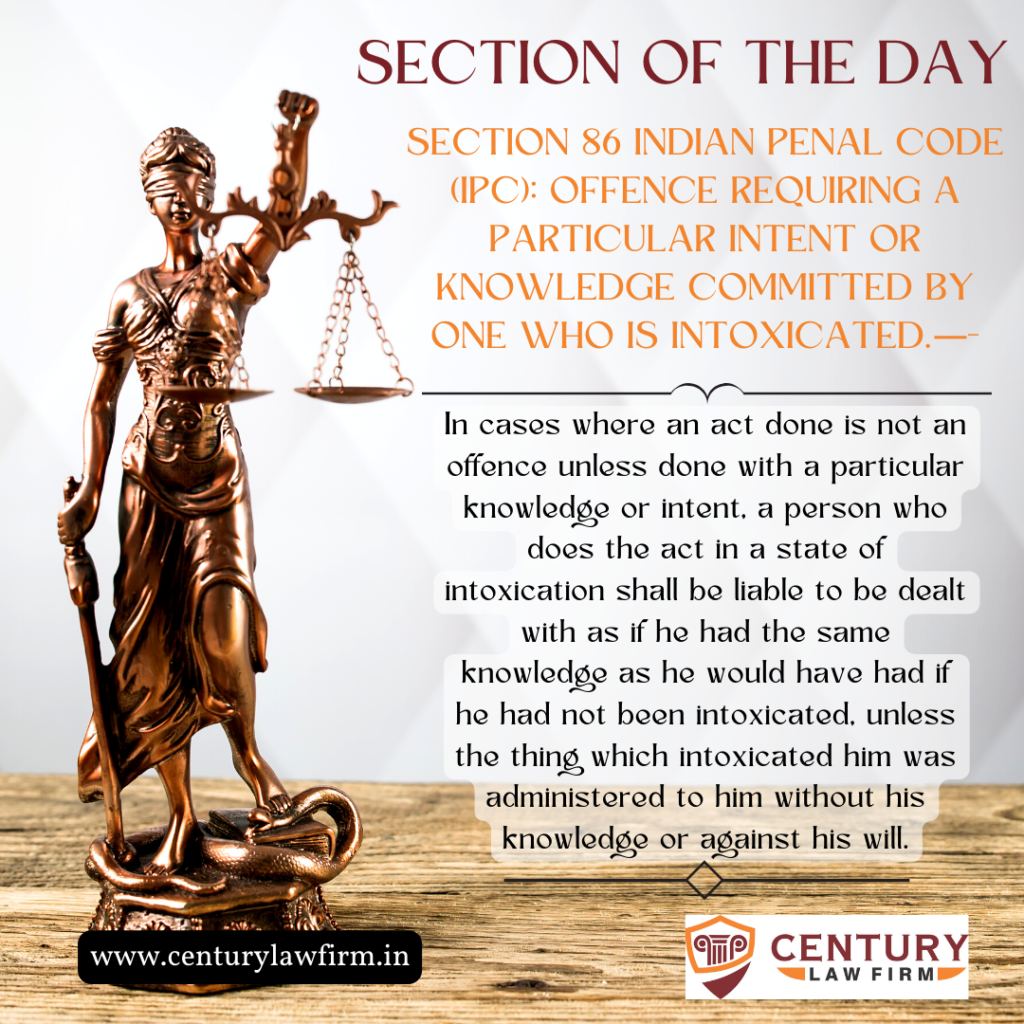Section 86 of Indian Penal Code (IPC): Offence requiring a particular intent or knowledge committed by one who is intoxicated.—
In cases where an act done is not an offence unless done with a particular knowledge or intent, a person who does the act in a state of intoxication shall be liable to be dealt with as if he had the same knowledge as he would have had if he had not been intoxicated, unless the thing which intoxicated him was administered to him without his knowledge or against his will.
Section 86 of the Indian Penal Code (IPC) deals with the situation when a person commits an offence requiring a particular intent or knowledge, while being under the influence of drugs or alcohol. The section states that “In cases where an act done is not an offence unless done with a particular knowledge or intent, a person who does the act in a state of intoxication shall be liable to be dealt with as if he had the same knowledge as he would have had if he had not been intoxicated, unless the thing which intoxicated him was administered to him without his knowledge or against his will.”
In simpler terms, Section 86 of the IPC lays down that if a person, while being intoxicated, commits an act that is not considered an offence unless done with a particular intent or knowledge, then that person shall be held liable as if he had the same knowledge or intent as he would have had if he was not intoxicated.
This section is based on the principle that a person who chooses to consume alcohol or drugs does so at his own risk, and is therefore responsible for his actions while under the influence. However, the section also recognizes that in certain cases, a person may be given drugs or alcohol without their knowledge or against their will, and in such cases, they cannot be held liable for their actions.
The application of Section 86 is limited to offences that require a particular intent or knowledge, such as murder, theft, or fraud. For example, if a person is intoxicated and commits theft, he will be held liable as if he had the intent to steal, even if he may not have had such an intent due to his intoxication.
It is important to note that Section 86 does not provide a complete defense against criminal liability for a person who commits an offence while intoxicated. It only provides for a limited defense that takes into account the person’s state of intoxication at the time of the offence. The burden of proving that the person was intoxicated and did not have the requisite intent or knowledge rests on the accused.
In conclusion, Section 86 of the Indian Penal Code recognizes the principle that a person who chooses to consume drugs or alcohol is responsible for their actions while under the influence. It provides a limited defense for such persons in cases where an act requires a particular intent or knowledge. However, this defense is not absolute, and the accused must prove that they were intoxicated at the time of the offence and did not have the required intent or knowledge.


